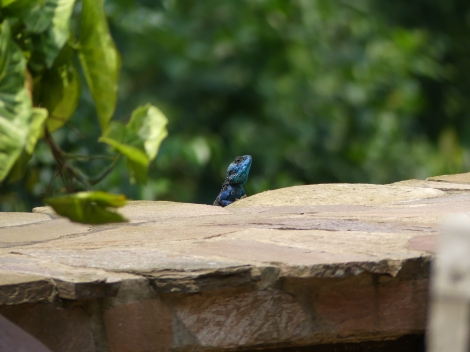We spent our mornings in Bohoma trekking for Gorillas and our afternoons visiting the village and its surroundings. We were discouraged from setting out on our own by our hosts at the lodge and thus we had not only a guide but an armed guard accompany us on our afternoons. When we asked the reasoning for the guard, we were told he was there to keep the village children from overwhelming us. With an AK-47. That answer didn’t make us feel any safer as we couldn’t help but think that we didn’t need protecting from these young people.
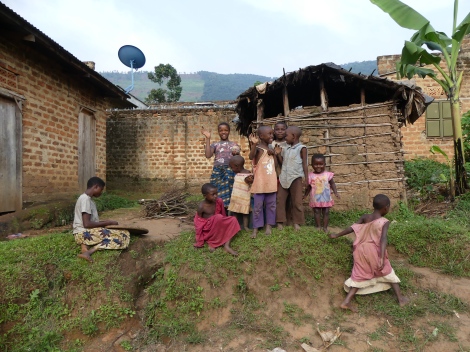
It was difficult to get to the bottom of this. We were told over and over that the village was safe, no one would try to hurt us but then we were not allowed to leave the lodge without the guard. Puzzling.
In the village, cattle
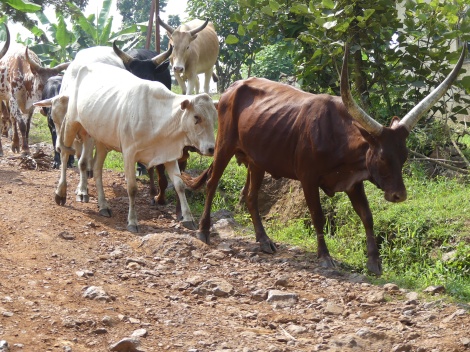
share the space with people
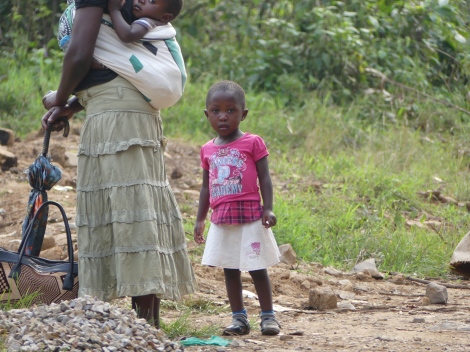
and tiny shops are set up along the one dirt road. Signs advertising accommodations were plentiful. It seemed to us that there were more “lodges” than tourists, in fact the only other foreigners we ran into were those on our Gorilla treks.
Our guide took us to visit a “Pygmy village” in the forest.
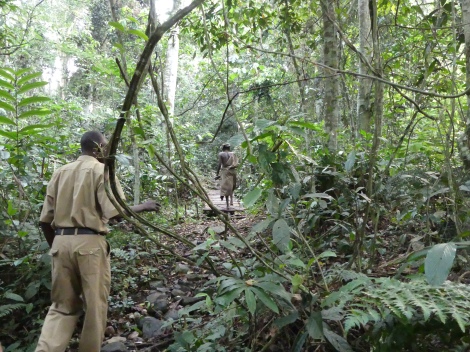
It’s not real though but only a reenactment of what one used to be.
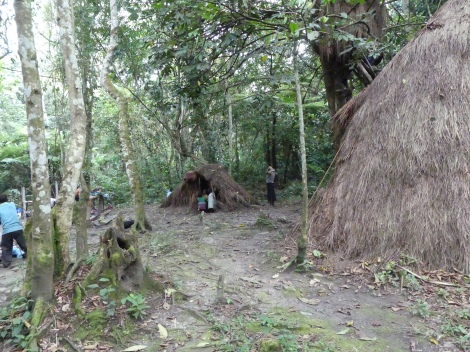
The Pygmy people used to live on the mountain, harvesting its resources, grazing their cattle and burning down patches of land to cultivate on. Once the area was designated protected for indigenous species, the Pygmy, and their livestock, were kicked out and forbidden to enter their ancestral lands. We were told by our guide that the government gave the Pygmy people plots of land to cultivate and that it provides them with a small stipend to make up for their loss. Judging from the terrible poverty they obviously live in, it didn’t ring true.
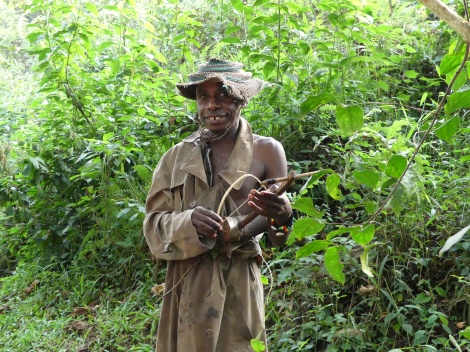
In this pretend village, the Pygmy showed us how they built tree houses where the children would be kept while the adults went hunting. One adult, armed with a bow and arrow, would stay behind to protect the children from harm.
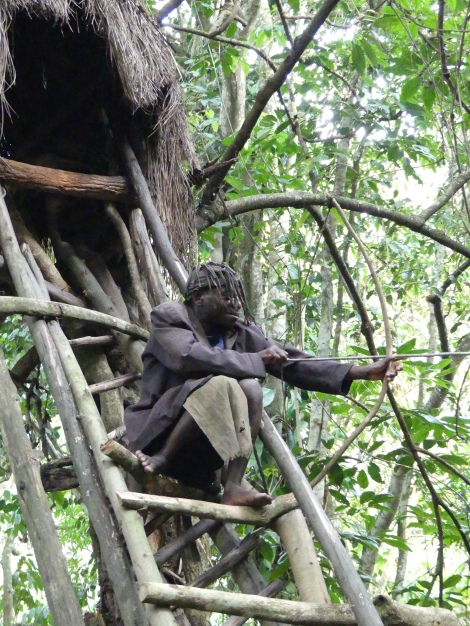
The Pygmy people danced their traditional dance for us
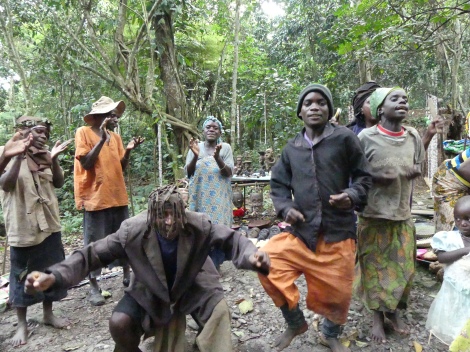
and showed us how they make fire by rubbing sticks.
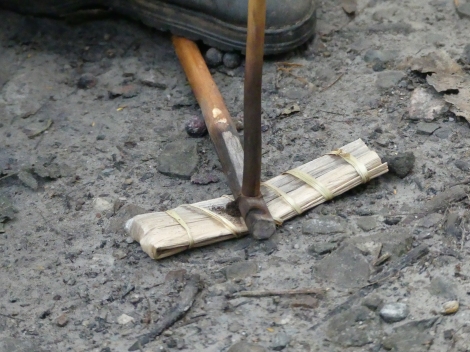
We were shown their tiny houses
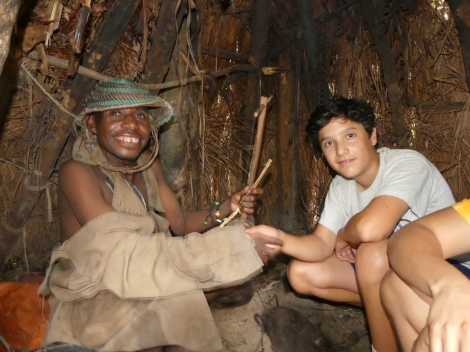
and even the “love hut” where newlyweds would stay for a month once married before integrating into the community. We were later told by fellow travelers that we got the sanitized version of the tour, maybe due to the boys being with us, while they got the fully violent “newlywed reenactment”. From their description, we don’t think we missed anything worth complaining about.
Back in the village, people paid us no mind as they went about their day. Makeshift broilers roast snacks for sale outside homes (our guide strongly advised us not to sample them)
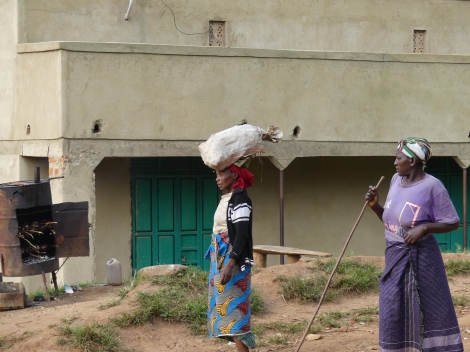
and children, on their way home from school, play futbol (soccer for y’all) with a coconut ball.
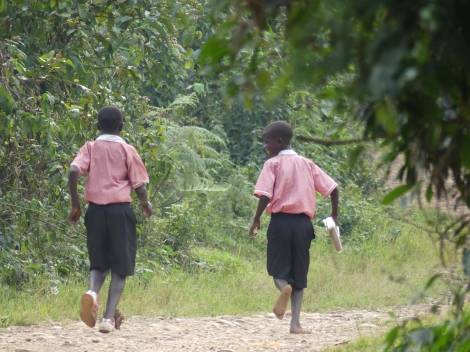
The mountains in the area are covered by fields of tea plants.
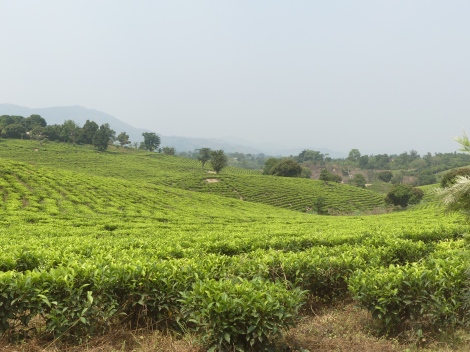
Tea production is what keeps this area afloat. While there are some coffee trees around
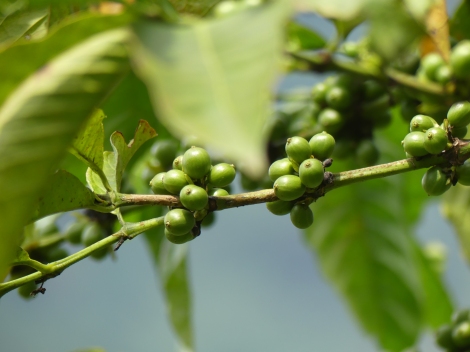
and coffee is Uganda’s primary crop export, our guide explained that it is not as immediately economically profitable as tea. Coffee trees take a few years to yield coffee beans and once harvested are done for; while tea just keeps on growing requiring very little care in these wet and high plains. Everywhere we looked, tea shrubs abounded.
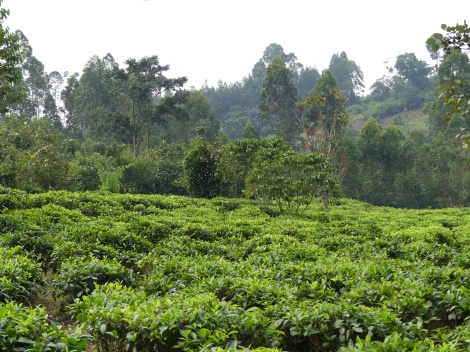
The branches with three leaves on them are harvested by hand before they get too old and brought to tents where they are inspected and weighed entitling their owners to a ticket which they will then cash in at the factory.
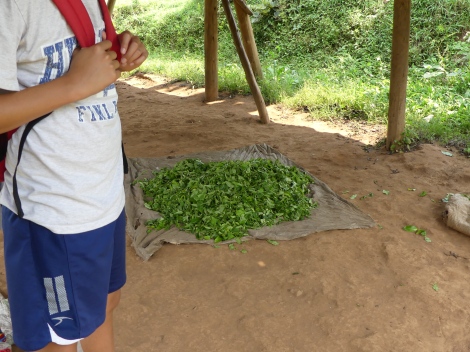
These tea leaf sacks are then taken to a processing plant. There are two tea processing factories in the area, one privately owned and the other communal: the Kayonza Tea Factory.
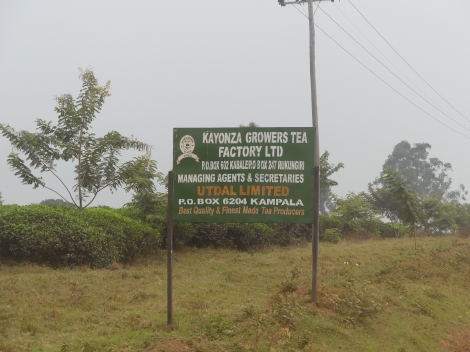
The independent growers in the area all have shares in this communal plant which is doing so well for them that they even were awarded a climate change prize last year for their conservation efforts.
Villagers also complement their meals and income by processing bananas in every possible way imaginable.
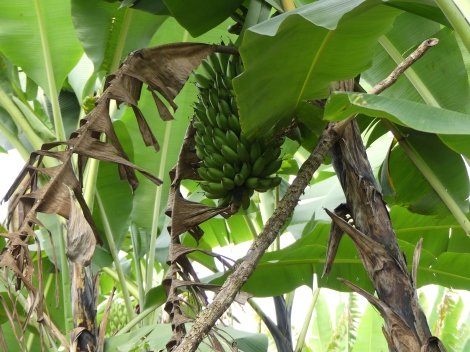
They make banana liquor by burying the green bananas in the soil under banana leaves and setting fire to them.
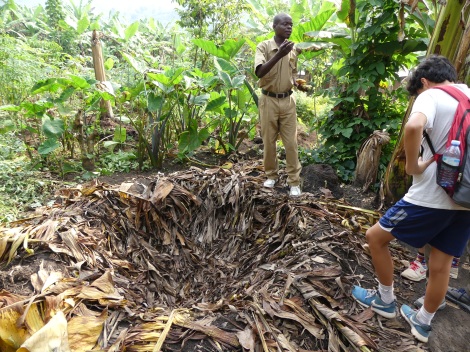
Once fermented, the bananas are dug up and placed in these hollow trunks where they will be squished by the man of the house (and only the man of the house) stomping them with his bare feet.
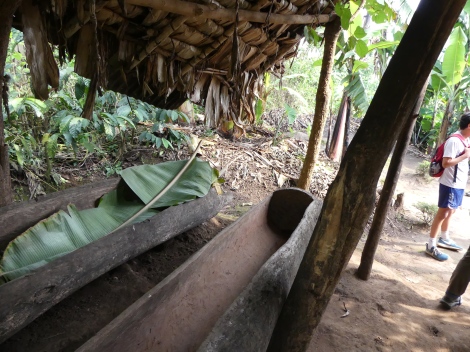
This is actually a dangerous job as the banana squish gets slippery and the man must hang on from ropes tied to the rickety roof of the hut to finish his work. Disregarding the process by which the liquor is done, it’s still nasty stuff and we wouldn’t recommend it. We also tried some banana juice and banana milk. Again, just don’t. What ever happened to simply eating a banana the way nature intended?
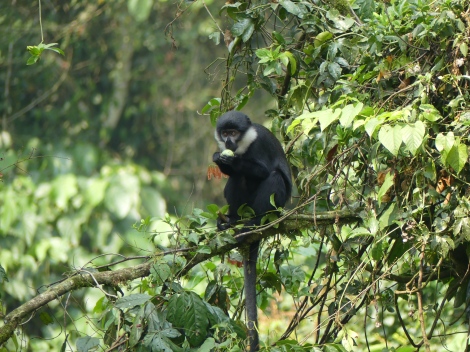
The village has one small clinic which is supported by contributions from the lodge we stayed in. Commonly though, villagers visit the traditional healer when they feel sick. He invited us into his “clinic”.
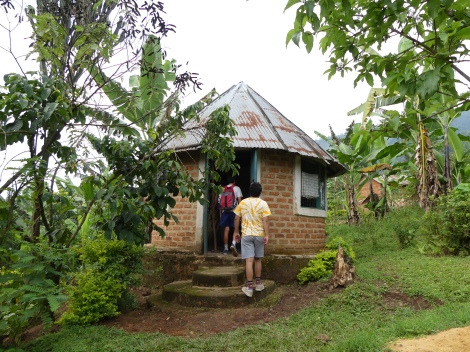
He showed us the plants he uses, all of which grow on the mountainside, to heal the most common complaints such as colds and stomachaches. Differently from the traditional healer in South Africa, he doesn’t use any divination aides to guess at what illness his clients might have but rather uses his vast experience to help them.
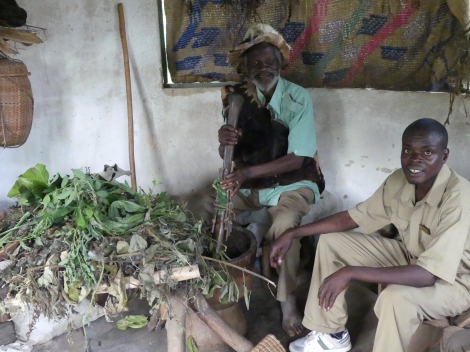
The healer learned his wisdom from his grandfather and is now passing it on to his grandson but I would say time is probably not on his side.
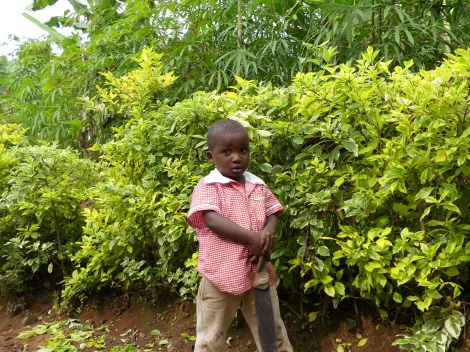
On our walk back from the healer, we ran into two young men carving gorilla souvenirs.
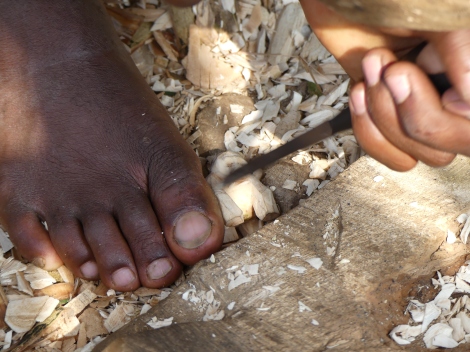
in a small hut.
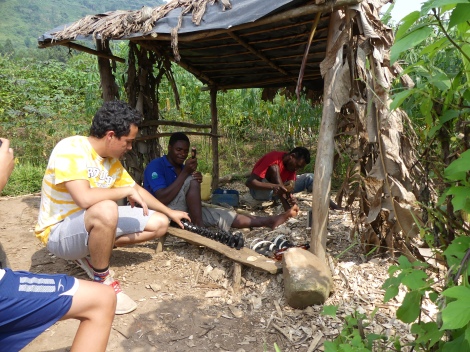
The end result is fantastic.
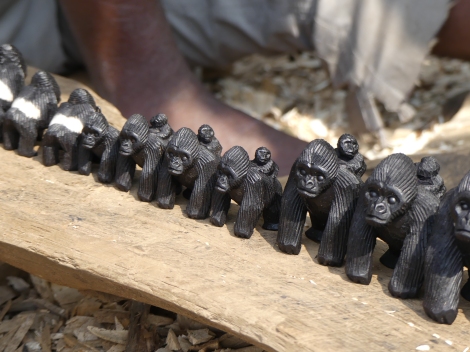
On our last afternoon, we begged to be allowed to go for a walk on our own. The area is just so beautiful that having a gun-wielding guard takes something away from it even if he stays a couple steps behind. Our hosts reluctantly agreed.
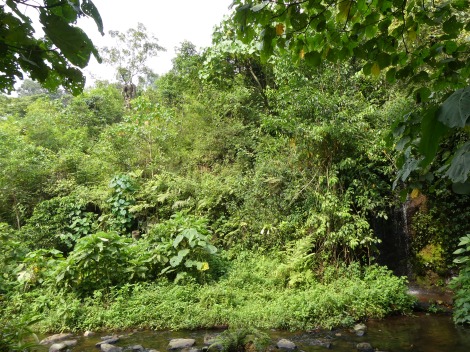
We came upon a small field of butterflies
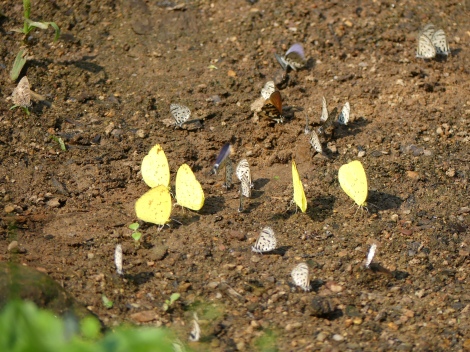
upside down birds
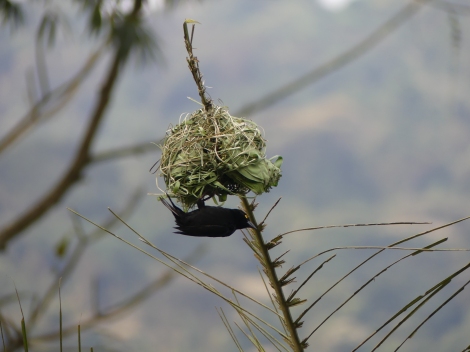
and even a few monkeys.
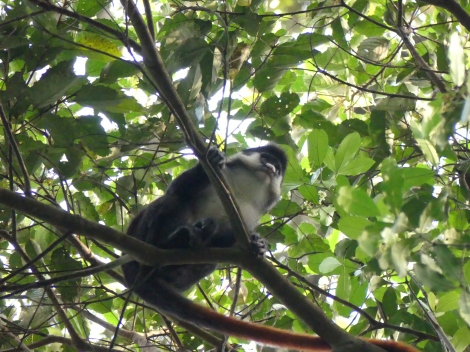
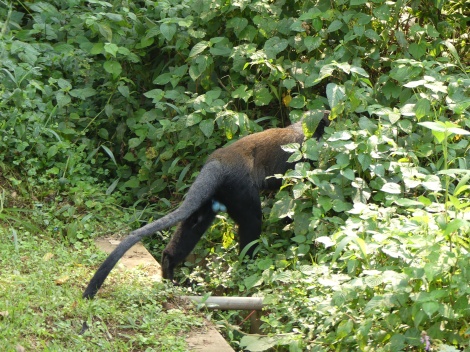
We saw a young man herding cattle on the mountainside, just like in Iceland!
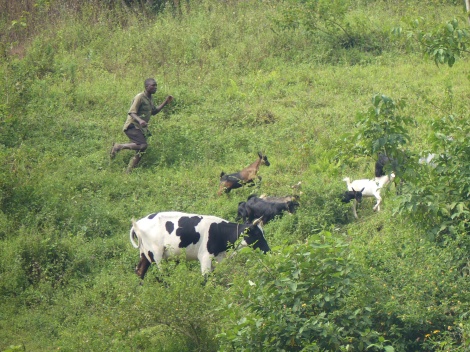
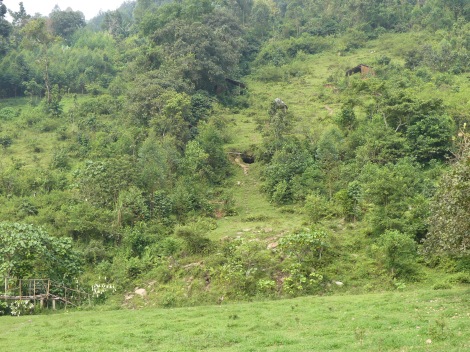
All sorts of flowers
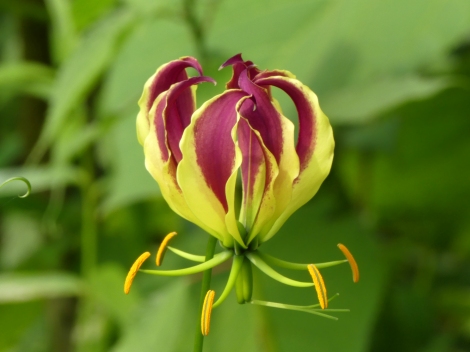
even poisonous ones, good thing we had been warned beforehand.
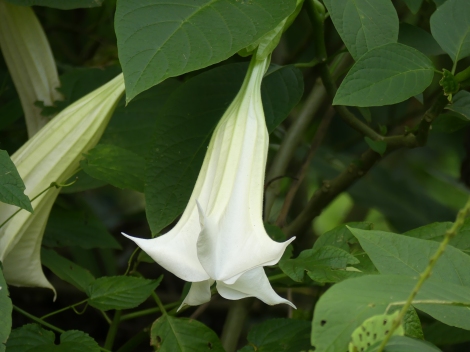
Young schoolboys on a break play futbol (can you make out the flip-flop goal posts behind the goalkeeper?)
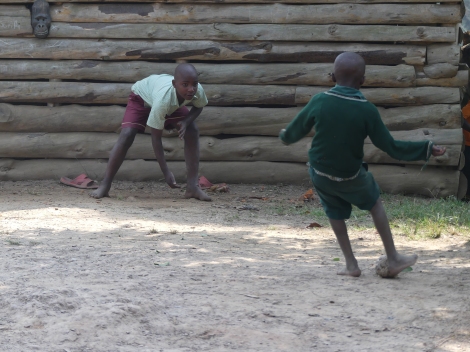
while others look on.
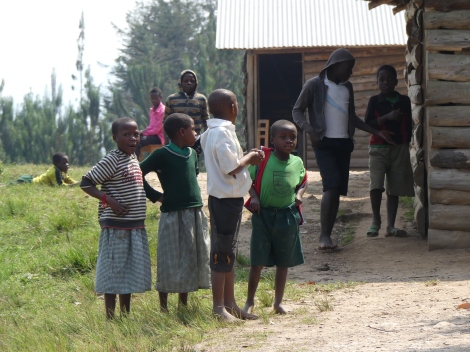
Wasp nests,
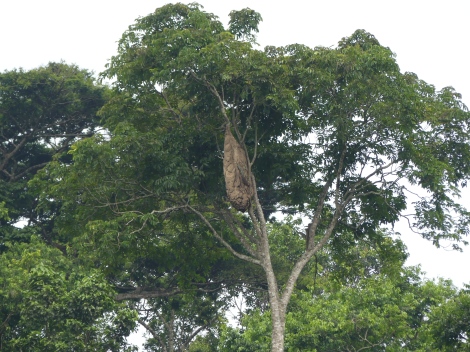
blue-headed lizards,
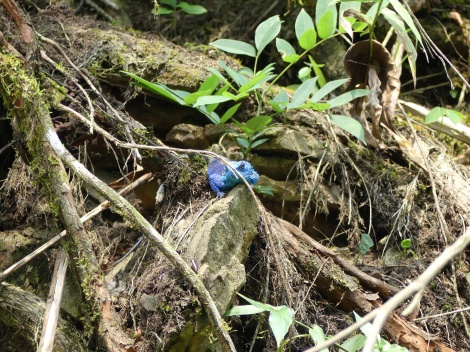
and beautiful cows.
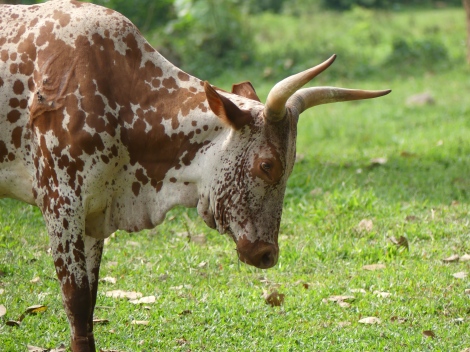
Most prevalent of all were the tea fields.
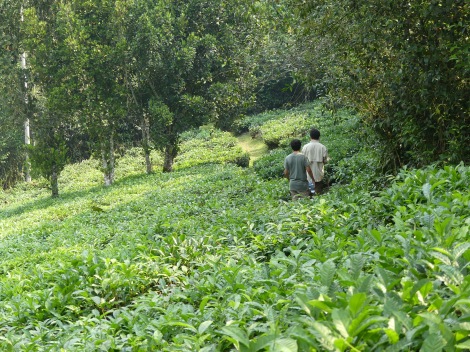
Our hosts seemed very relieved when we got back to the lodge safely and quickly carted us away to visit the local orphanage. More than an orphanage, this is a boarding school, Bwindi Watoto School, where most of the boarders have either lost one or both parents, a majority of them to AIDS. The school is privately run, doesn’t receive any government funding and thus survives on children being sponsored for their time at school by donors. The children perform a show every afternoon for the tourists in order to garner donations. Even though this is similar to what happened during our visit to the school in South Africa it had a very different feel, maybe because class was not interrupted for our visit but rather the afternoon show is a running event? The children seemed happy singing, dancing and playing with each other.
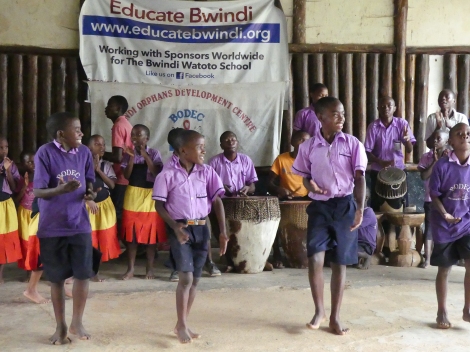
Education is a difficult problem here. Primary education is free by law to all children in Uganda. Worthy goal but elusive in implementation as there are simply not enough resources to go around for all the children needing schooling. Rural areas, like Bohoma, are even more likely to lack the resources to educate their children. There are at least three private boarding schools operating in the area and they all subsist on donations.
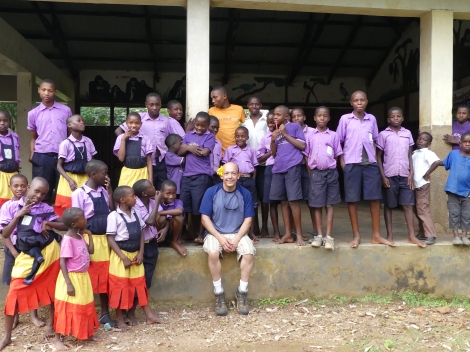
Our time in Uganda was fantastic although we feel we failed to truly understand the social dynamics going on here. As our driver pointed out, Uganda is a country rich in natural resources but its people are so terribly poor. He blamed it on a lack of democratic governance. As he explained it, to be able to build a business in Uganda, a person must have the approval of the president and only his close allies get such approvals. President Museveni has been in power for 30 years now and while his cronies keep getting richer, the rest of the Ugandan people still live in squalor. We can only hope that things will peacefully change for the very young, more than half the population is under 20 years old, people of Uganda in the near future. We would love to be back one day.
